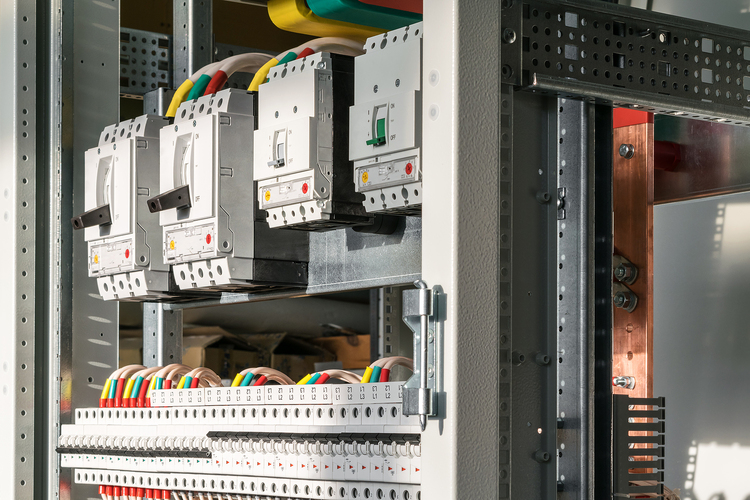Emergency Certified Electricians in Dallas, TX.
Call this Sunday to Get 10% OFF
Emergency Certified Electricians in Dallas, TX.
Call this Sunday to Get 10% OFF

The electrical panel, also called the distribution board, DB box, or panelboard, is a central component of your building’s electrical system. It distributes the incoming electrical supply into a number of circuits throughout the building. It also protects your electrical wiring and electrical system from damage by sensing unusual electrical activity and shutting off electrical supply to the affected circuit. Most homes use circuit breakers, but homes built before 1960 may have a fuse box instead. If you are not sure what either of these are, then keep reading. We will review the differences, and similarities, between circuit breakers and fuse boxes.
How Fuse Boxes and Circuit Breakers Work
Both fuse boxes and circuit breakers serve the same function: to protect your electrical system from damage caused by unusual electrical activity. In short, they both cut off the electrical supply to a circuit when they sense dangerous electrical activity in the respective circuit. How they go about cutting off the electrical supply is where they differ.
Fuses are little plugs with filaments inside of them. Sort of, but not really, like a miniature lightbulb. When the filament gets too hot, as a result of a short circuit or power surge, the filament melts. As a result, electricity is no longer able to travel to that circuit. A blown fuse will have to be replaced before you can get back to your regular schedule.
Circuit breakers, meanwhile, are switches. More specifically, they are electromagnetic on/off switches. When a circuit draws too much power, the circuit breaker absorbs the surge and "trips" to the OFF position, cutting off the electrical supply to the circuit. Simply flipping the switch back into the ON position will be enough to bring back power.
Pros and Cons of Fuse Box Vs. Circuit Breakers
Frankly, there is no benefit in having a fuse box over a circuit breaker. It is generally agreed that fuse boxes should be upgraded to a circuit breaker. The cost of constantly replacing blown fuses can quickly add up, dwarfing the cost of a circuit breaker installation. Replacing fuses is not risk-free either. Proper procedure requires you to stand on a rubber to avoid electrical shock or electrocution. You might be surprised to learn that property insurance providers often charge higher for homes with a fuse box vs. those with a circuit breaker installation.
Plus, the fuse box was likely installed several decades ago and not built to meet the electrical demands of the 21st century. If you have been dealing with frequently blown fuses, then you might have just gotten your explanation.
Protect your property, enjoy lower property insurance premiums, and put an end to the drives to the hardware store for fuses by investing in a circuit breaker installation. The dependable electricians at Mr. Electric of Dallas are experienced, trained, and equipped to take care of the job quickly and correctly the first time around. Call Mr. Electric to consult with a representative, get your free price estimate, and schedule a flexible appointment today. We are ready when you are.